The foundation of search marketing is built on keywords. Search marketers know that conducting continuous keyword research and keyword analysis is critical to achieving success with organic and paid search advertising. But conducting and implementing keyword research is also highly effective for social media marketing.
Whether your target audience is sharing content on Facebook, Instagram, or Twitter, your social media marketing efforts should start with determining which social media keywords your audience is using.
To be more specific, conducting keyword research for social media enables you to discover the needs and wants of social communities by:
- Tracking popular and trending topics on Twitter and other social networks
- Determining search query frequency
- Gauging market interest for products or services
- Identifying demand for keywords
- Better understanding user intent
- Discovering relevant points of engagement
By researching and identifying social media keywords, you gain a much clearer picture of how to construct and communicate your message effectively. Applying this level of keyword insight to all your social media optimization efforts (from optimized video, to image tagging, to social bookmarking, to targeted tweets) gives you the maximum “pull” and value out of your social media marketing plan.
But Isn’t All Keyword Research the Same?
Many marketers believe that keyword research is a one-size-fits-all process. They assume that the same keyword data they apply to their pay-per-click advertising or search engine optimization efforts will be just as effective for their social media marketing strategy. This couldn’t be further from the truth. There are some major differences between search and social, which include:
- Query variances: The most popular queries in Google aren’t the most popular queries in YouTube. Take, for example, the query “YouTube,” which is very popular in Google though not popular at all on YouTube, where Arts and Entertainment queries (such as searches for music) dominate user searches.
- Behavioral differences across platforms: Not only do query types and user behavior differ between Google and social media sites, but there are dramatic differences from one social platform to another. The behavior exhibited by users on the photo sharing site Flickr are often dramatically differently than micro-bloggers on Twitter.
- Query vs. Conversation: Social engagement is more than just punching a query into a search engine. Searchers are looking for an answer to a question or an unmet need, while social media users want to engage in conversation, share ideas and interact with one another. So thinking just in terms of keyword strings is limited and can lead to completely misunderstanding user intent and expectations.
Given that user behavior differs between search and social and from one platform to another, we see the importance of performing keyword research specific to social media and refining your research across platforms.
With that, let’s take a look at how to perform keyword research for five of the most popular social networking websites:
- YouTube
Find your best keywords with WordStream’s Free Keyword Tool!
Keyword Research for Facebook
As the world’s largest social network, Facebook occupies a unique space in the social media ecosystem. Boasting a user base of more than two billion regular users, Facebook offers enormous reach and a highly engaged audience, making it the ideal platform for pay-per-click advertisers, content producers, and brands hoping to extend their reach as part of a wider social media marketing plan.
One of Facebook’s greatest strengths is its incredibly granular and sophisticated targeting options. Advertisers and search marketers can target their prospective audiences based on hundreds of different criteria, including demographic data, behavioral patterns, wider online interests, as well as layered segmentation combining any of the data points available.
Conducting keyword research for Facebook in the traditional sense isn’t actually possible. Facebook doesn’t offer keyword-level targeting, nor any built-in keyword research tools. Instead, think of Facebook’s audience profile data as the starting point for your keyword research.
Facebook offers incredibly granular audience targeting based on hundreds of parameters, including demographic data, life events such as having a child or getting married, specific hobbies and interests, as well as wider topical interest areas. This allows you to use interest- and demographic-based data points as the first step in your keyword research for Facebook. For example, if your business sells health products such as vitamin supplements, you could target mothers who are interested in yoga and similar audience segments, as this demographic is likely to be interested in health-related topics and products in a broader sense.
Given the strong correlation between interest targeting and high commercial-intent keywords, Facebook’s granular audience segmentation options are an ideal starting point for your Facebook keyword research workflow, whether you’re an advertiser, a search engine optimization specialist, or a content marketer.
Keyword Research for Twitter
A perennial favorite of digital marketers, journalists, and pretty much every niche interest group you can imagine, Twitter is a curious beast. On one hand, the “firehose” of data Twitter offers represents an incredible opportunity for real-time engagement and unparalleled reach for breaking news and live events. On the other hand, wrestling with an enormous volume of constantly updating feeds can be a challenge for even the savviest digital marketer.
In recent years, Twitter has refined its internal search algorithms to make it easier to find relevant content on the platform. Not so long ago, hashtags were considered vital to Twitter, offering one of the few ways to track conversations as they happened in real time. Today, Twitter hashtags are still used, but Twitter’s increasingly accurate search functionality means that you can now search for any keyword or phrase, regardless of whether people are using dedicated hashtags or not. This can be very handy for identifying trending topics on Twitter.
Twitter’s internal search functionality has improved by leaps and bounds in recent years, but it’s far from the only method of keyword research at your disposal. Twitter’s Analytics platform offers invaluable insight into how keyword data can be leveraged for greater reach and higher engagement. Similarly to Facebook, Twitter’s strength lies in its audience data. This can be accessed via Twitter’s built-in analytics tools:
You can also search Twitter directly for specific keywords, hashtags, and phrases. To search for specific terms, use quotation marks in your search to find exact matches for your search term:
This search modifier also works if you want to search specific users’ feeds for exact-match terms. In the example search above, Twitter will search for any and all tweets, both from the WordStream handle and tweets mentioning WordStream, for the keyword “AdWords.” The results look like this – you’ll notice that our search terms are in bold:
Again, similar to Facebook, Twitter lacks a built-in keyword research tool, so you’ll have to use these results as the starting point for your keyword research in a third-party tool such as WordStream’s Free Keyword Tool.
Keyword Research for Instagram
Although Instagram is owned by Facebook, and shares some newly implemented similarities as its parent company’s product, Instagram itself is quite different. For one, it’s a primarily visual service, which leads some marketers to mistakenly assume that keyword research is of little value to Instagram marketers. This is not the case!
First of all, Instagram SEO is a thing!
Secondly, unlike Twitter, Instagram relies heavily on hashtags in terms of content discovery. Aside from attractive visuals, the top-performing Instagram posts all share one common characteristic – an abundance of hashtags. This lets users find content that’s relevant to their interests and share it with their followings. This means that although the platform relies on hashtags more so than other social media services, keywords form the basis of content discovery on Instagram.
Since Instagram also lacks a dedicated keyword research function, hashtags will form the basis of your initial keyword research workflow. Fortunately, accepted best practices for maximizing visibility of Instagram content allow for the use of many hashtags in a single post – something that may be possible, but frowned upon by users of other social media sites. This means you can target many different keywords in a single post.
Third-party keyword research tools aren’t essential to conducting reliable keyword research on Instagram, but they can help categorize and organize your keyword data itself. If you’re planning a broad campaign, it may be worth considering using a keyword research tool in conjunction with Instagram’s internal search function to ensure your campaigns are tightly organized.
Find your best keywords with WordStream’s Free Keyword Tool!
Keyword Research for YouTube
YouTube isn’t just a video-hosting platform – it’s the video hosting platform. With more than 300 hours of video uploaded to the site every single minute and more than 5 billion unique views every day, YouTube is the undisputed king of online video.
With so much video content being produced and uploaded to YouTube every day, keyword research and optimization are absolutely crucial to marketers hoping to grow their online audience. Content discovery plays a major role in optimizing content for YouTube, and as such it’s important that your keyword research be as comprehensive as possible, especially if you’re trying to compete in a crowded or competitive vertical.
There are a number of third-party keyword suggestion tools built specifically for YouTube. Only you can decide which one best suits your needs, but if you’d rather work with YouTube’s internal functions, it’s actually a lot easier than it may look.
As a Google-owned property, YouTube has incorporated much of the technology of its parent company, including its search functionality. An excellent way to find new keyword suggestions to target with your video content or ads is by using “wildcard” searches. To do this, enter part of a search term, and include an underscore character (“_”) in place of a missing word. YouTube will then offer up a series of suggestions, similarly to Google’s autocomplete search function, that can be a fantastic source of keyword ideas. You can also simply begin typing a keyword, and Google’s autocomplete will fill in the blanks with relevant topics and keywords:
If you’re running ads on YouTube, you have more tools at your disposal. For one, you can use Google’s keyword research tools to conduct keyword analysis before launching a campaign. Google’s Keyword Planner, a core part of the Google Ads interface, is a great starting point for identifying relevant keywords for your next YouTube campaign. You can also use WordStream’s new and improved Free Keyword Tool to find even more keyword data.
Keyword Research for Pinterest
Of all the major social media platforms, Pinterest is arguably the most unique. A digital interpretation of the classic pinboard, Pinterest is unique in that it relies solely on user-curated – not solely user-generated – content. However, this distinction doesn’t change the fact that keywords remain a crucial part of optimizing content for discovery on Pinterest.
Optimizing content for discovery on Pinterest is tricky, due to the fact that the vast majority of content on Instagram is user-curated, meaning that Pinterest itself has limited input on what content appears on its site (beyond the typical terms and conditions concerning offensive content etc.). There are, however, several ways to do it.
The first is similar to using Google autocomplete functionality in wildcard searches, which is using Pinterest’s own search feature as a starting point. Before you even enter a keyword, Pinterest will present you with several timely search trends:
In the example search above, you’ll see that the top trending keyword is “bullet journal”, a method of journaling that has become very popular recently. As you can see, the keywords “chicken recipes”, “dorm room ideas”, and “painted rocks” were also trending at the time of this search.
Another excellent source of potential keywords is Pinterest’s Explore tab, which provides you with a range of topic suggestions based on user engagement across the platform, each of which can be further explored and refined for even more relevant keyword ideas:
Simply enter a keyword and you’ll be presented with several relevant suggestions you can explore as the basis of a keyword set or ad group. You can also refine your results in real-time by selecting a keyword suggestion, and repeating the process:
In the example search above, our original keyword was “woodcrafting”. Pinterest then suggested a series of further keywords that are relevant to our original query, as well as suggestions of relevant Pinterest users and even different boards that feature our initial search term.
Another option is to use Pinterest’s advertising options as part of your keyword research workflow. To get started, you’ll need to create a Pinterest for Business account, then navigate to the “Promoted Pins” option in the user menu. From here, you can create and name a new campaign, as well as set a daily budget. At this point, you can enter your initial search query to see a range of related keyword suggestions that are relevant to your original keyword. Some may be less useful than others, but even these recommendations can be used as negative keywords if you’re planning an ad campaign.
Conclusion
By performing keyword research for social media and analyzing term usage on a site-by-site basis, you can gain an advantage over your competitors, who likely research keywords only once and with a blanket “one size fits all” approach across all marketing channels. Remember that user behavior varies from search to social and from platform to platform and thus your approach to keyword research must also adapt. By following the steps laid out in this expert guide to researching keywords for social media, you can leverage the domain authority of the Web’s most popular social networking sites to promote your brand, products, and services.

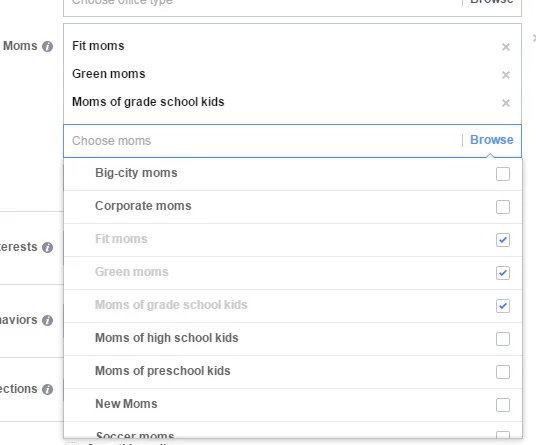


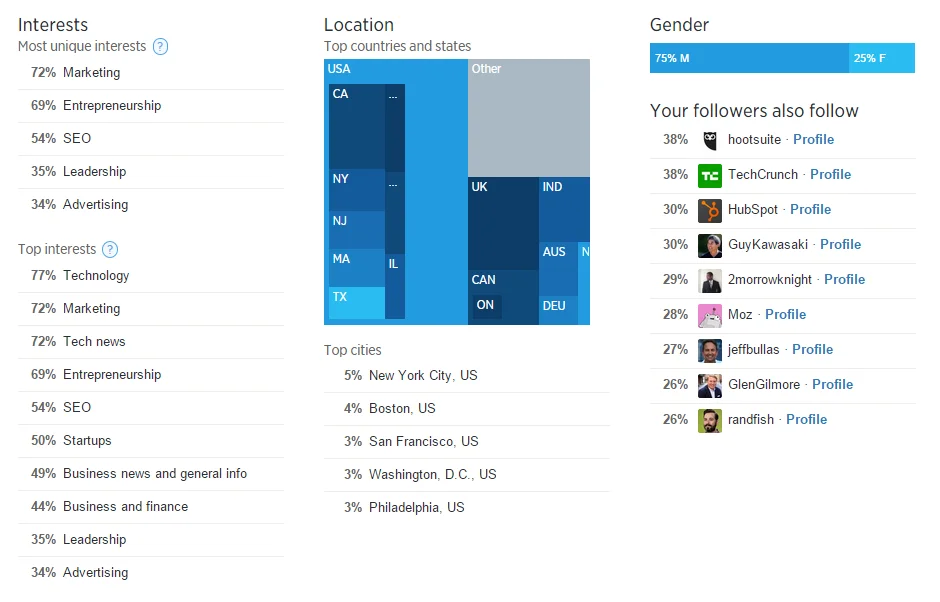


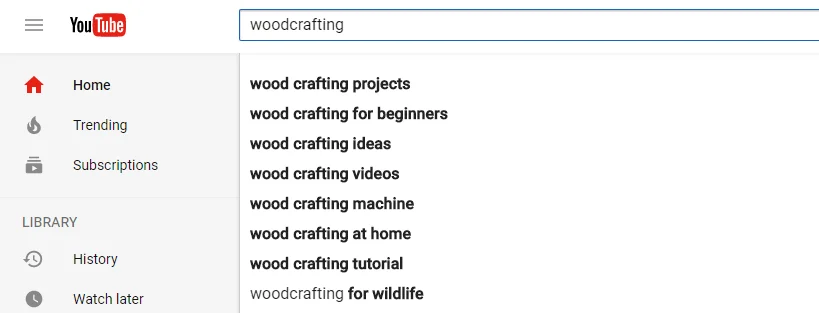

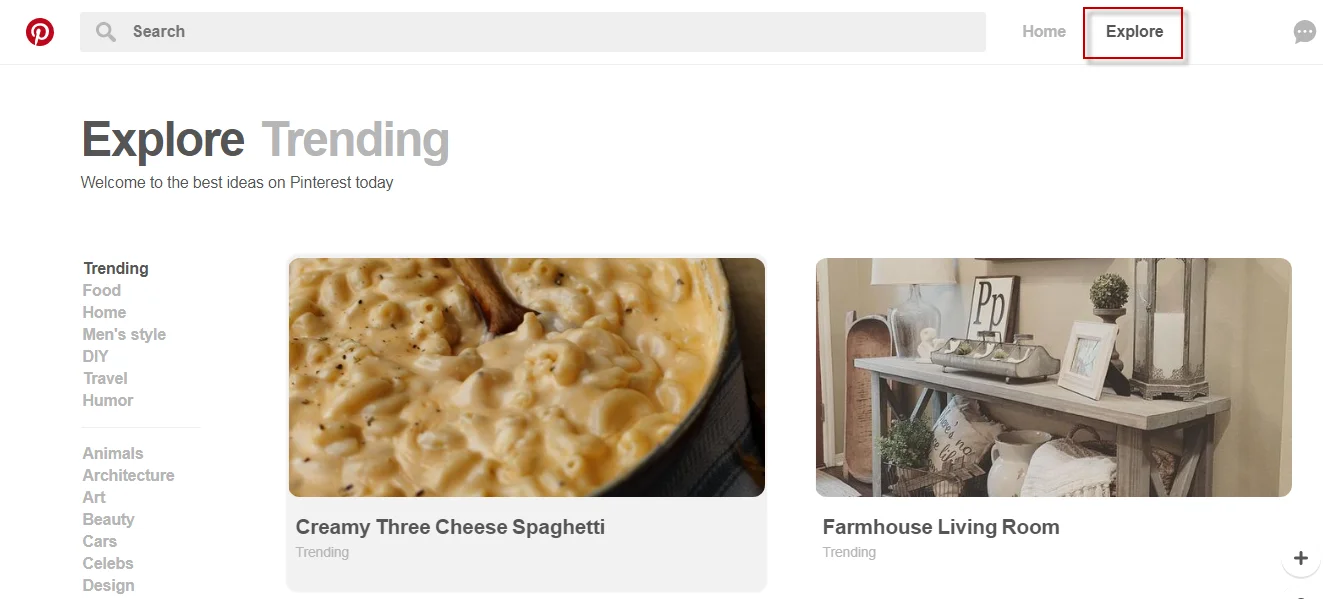
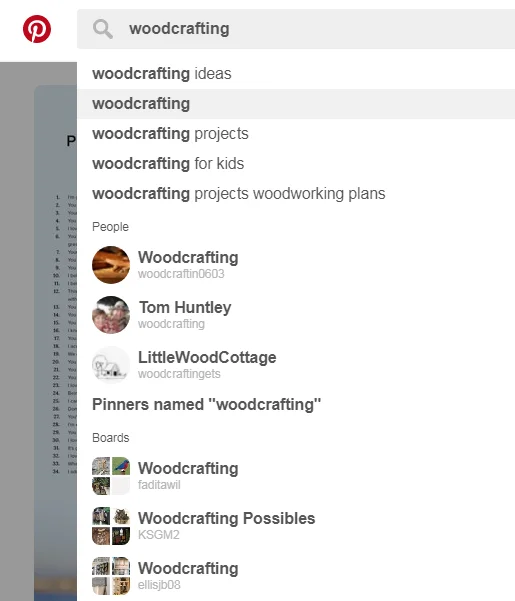

0 Comments